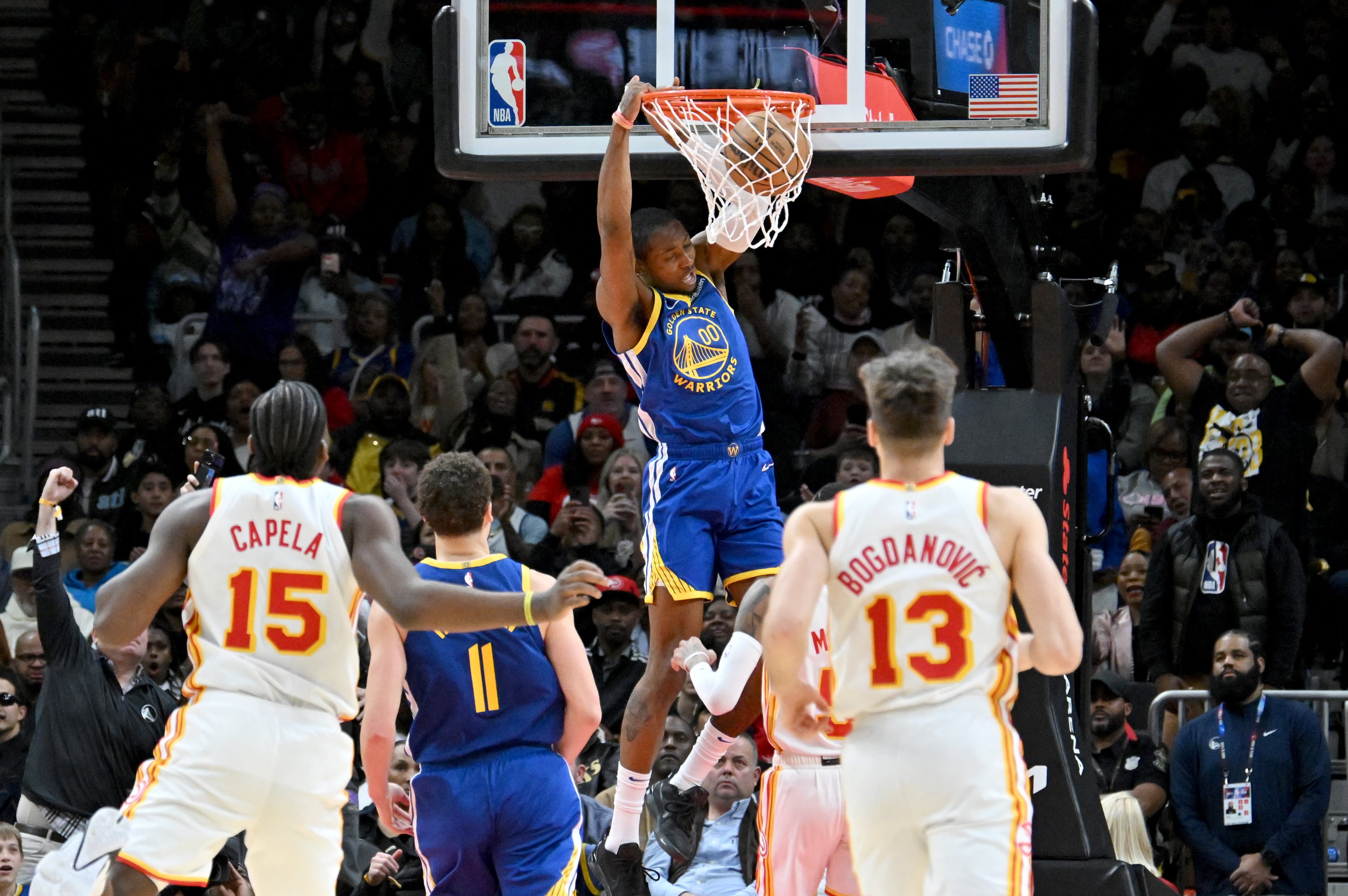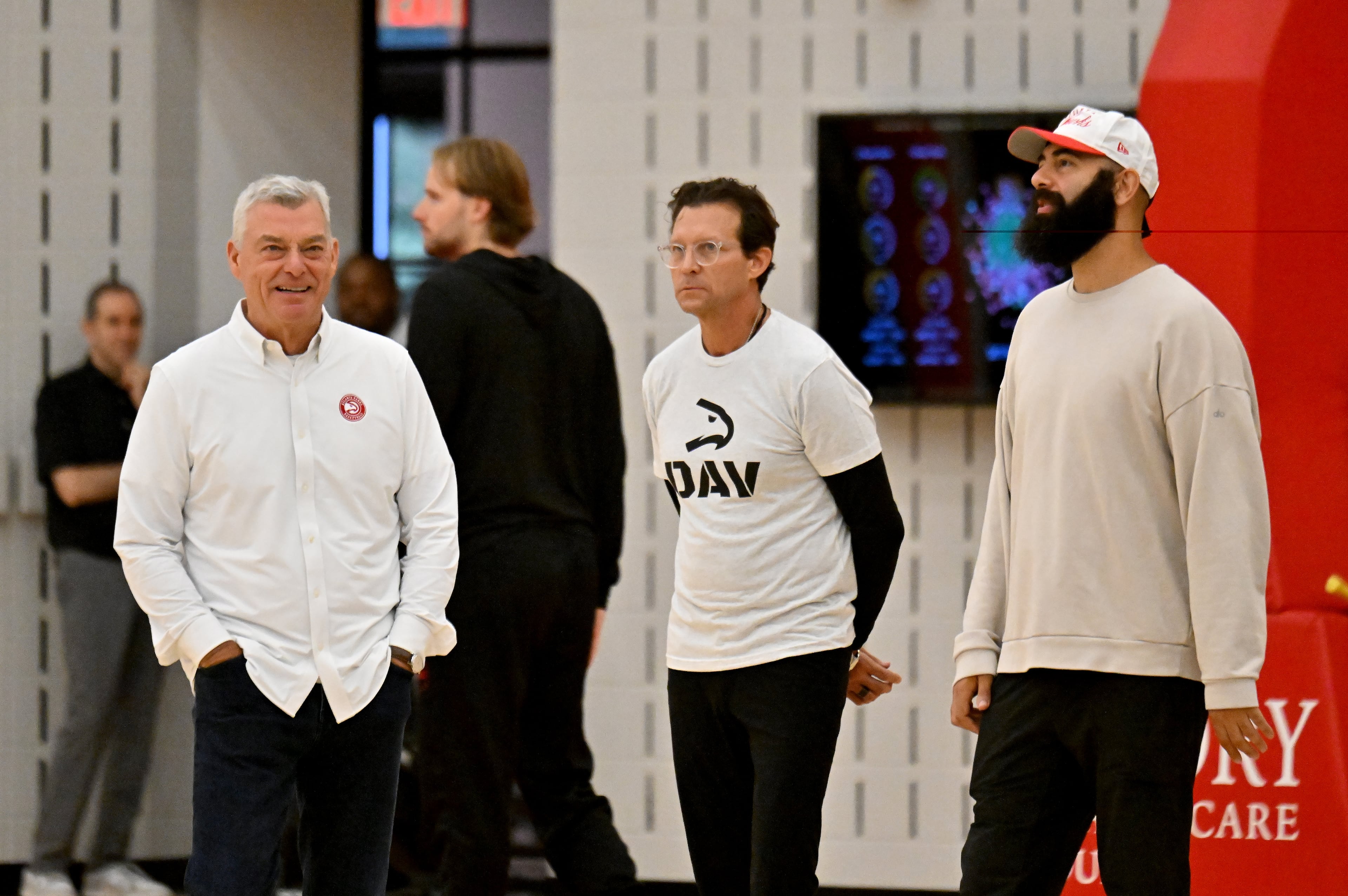Whatever happened to … Danny Manning
The scars are prominent.
The long, thick, unmistakable marks run vertically through Danny Manning’s knees and harken to the more-invasive days of surgery. They are constant reminders of a 15-year NBA career that survived three operations to repair torn ligaments. Still, the No. 1 overall pick after a national championship at Kansas in 1988 had a productive professional career that included a brief stop in Atlanta.
Many remember the stint with the Hawks, even if it lasted only 26 games, as the worst trade in franchise history. It was 20 years ago in February that the Hawks acquired Manning from the Clippers at the trade deadline for one Dominique Wilkins.
“When they booed me the first time they introduced me, I would say so,” Manning said with a smile recently when asked his remembrance of the unpopularity of the trade.
Following his NBA career, Manning returned to college. He spent nine years as a manager and assistant at his alma mater Kansas, where he won another national title in 2008. He left to become head coach at Tulsa and spent two seasons in Oklahoma. In April, he became head coach at Wake Forest and will lead the Demon Deacons in the tough ACC.
Manning spoke recently from his campus office, and the scars he carries are visible reminders of the experience and credibility he brings to his new high-profile job at a school located only 30 miles from his childhood home in Greensboro, N.C.
The following are excerpts from a his interview with The Atlanta Journal-Constitution.
Q: Why did you decide to take the job at Wake Forest?
A: It was a lot tougher of a decision than I imagined from the standpoint you are at a place with good kids, and you are connected to them. That was the tough part, telling those guys goodbye. This is, in my opinion, the best conference in the nation for college basketball. I have an opportunity to be in this conference, at a school like Wake. I think what it stands for and how they go about their business, in the area that I grew up in, was too good to pass up.
Q: Who were your coaching influences?
A: My father (Ed Manning) passed away in 2011. He helped shape me on and off the court. Coach (Larry) Brown in college made me a better person and player. He made sure I graduated. Bill Self, I worked for him for nine years.
Q: Do you believe your college and professional experience brings you credibility with your players?
A: Three guys on staff played professional basketball (including Steve Woodberry and Randolph Childress), two guys who have been first-round picks. We feel like we all have a lot to share. In my career, I've been a starter. I've been a rotation guy. I've been a sixth man. I've been a guy not in the rotation. I've been injured. I've not been on the travel list. I've experienced every role a player can have. So, I feel very comfortable being able to relate to each and every guy on our team. I might not know exactly what each individual is feeling, but I have a pretty good idea. I try to use that and share that with our guys on the court. "Hey, you know what, this worked for me or this didn't work for me." You are still going to have to find your way, but these are some paths that might help you navigate it a little better.
Q: Will you recruit nationally?
A: Any and everywhere. We are going to play against people from any and everywhere. We are going to try to get people from any and everywhere.
Q: How do you reflect on your time with the Hawks?
A: I enjoyed playing for Lenny Wilkens. He is someone who has had an impact on by basketball philosophy as well. I thought we had a really good team. I enjoyed it. It's difficult being traded for a legend. It was. Dominique is an institution and still is in the city of Atlanta and the state. It helped me develop a little bit tougher skin. It was fun. I still say in contact with some of those guys.
Q: What was your reaction to the public opinion of the trade?
A: For me as a player, I don't think it was necessarily personal. I just think it was moreso the institution of Dominique and him not being there anymore. He's someone I watched play in college. He spent his really, really talented years in basketball playing for the Hawks. For me, as a player, I just want to come in and help the team continue to win. Because when I got there they were winning, and I didn't want to be the reason that they did not continue to do so.
Q: How do you reflect on your NBA career overall?
A: I'm very proud of it from the standpoint of battling through adversity — the only player to battle through three ACLs and continue to play for 15 years. That is something I'm very proud of. I had great doctors, therapists and people challenging me to get better each day.
Q: Would you consider coaching in the NBA?
A: I enjoy college right now. I enjoy the energy and the excitement. I enjoy being on campus, the interaction with the young people that we come in contact with. You have to have the energy to want to do that. If you ever get to the point where you want to be around basketball but you don't want to do the thing necessary to be a successful coach, then the NBA is an option — because it's all ball. And you get an offseason. Right now, we don't have that luxury in college athletics.



